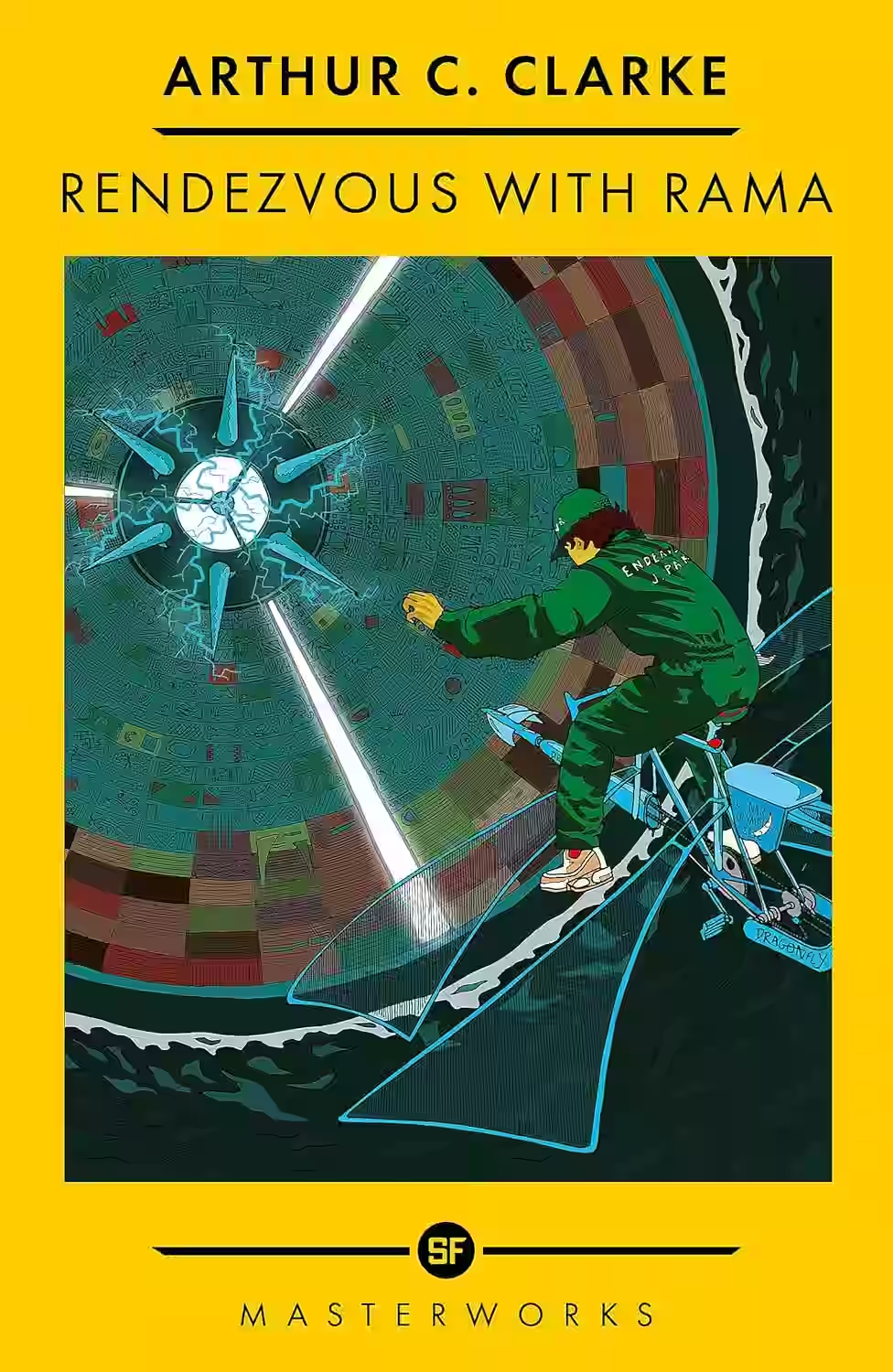
Arthur C. Clarke's 'Rendezvous with Rama' is a spellbinding work of science fiction that propels readers into the awe-inspiring unknown. Set in the 22nd century, humanity is stunned when a mysterious cylindrical alien ship, dubbed 'Rama,' enters the Solar System. The story follows a group of explorers aboard the spaceship Endeavour as they attempt to uncover the secrets of this enigmatic visitor. Clarke masterfully blends hard science fiction with philosophical undertones, pondering the nature of intelligence and humanity’s place in the universe. The novel's pace and structured exploration create an atmosphere of eerie wonder, leaving readers questioning the possibilities of extraterrestrial life. Its visionary and thought-provoking narrative has cemented Clarke's reputation as a titan of the genre, inspiring curiosity and reflection long after the last page is turned.
About Arthur C. Clarke
Arthur C. Clarke (1917-2008) was a British science fiction writer, futurist, and inventor. Best known for his groundbreaking novel '2001: A Space Odyssey', Clarke's visionary works explored the possibilities of space exploration, artificial intelligence, and extraterrestrial life. His collaboration with Stanley Kubrick on the film adaptation of '2001: A Space Odyssey' solidified his reputation as a key figure in the genre. Clarke's writing style seamlessly blended scientific accuracy with speculative fiction, earning him numerous awards including Hugo and Nebula Awards. His contributions to literature continue to inspire generations of readers and writers, cementing his legacy as a pioneer of science fiction.
Other Books by Arthur C. Clarke
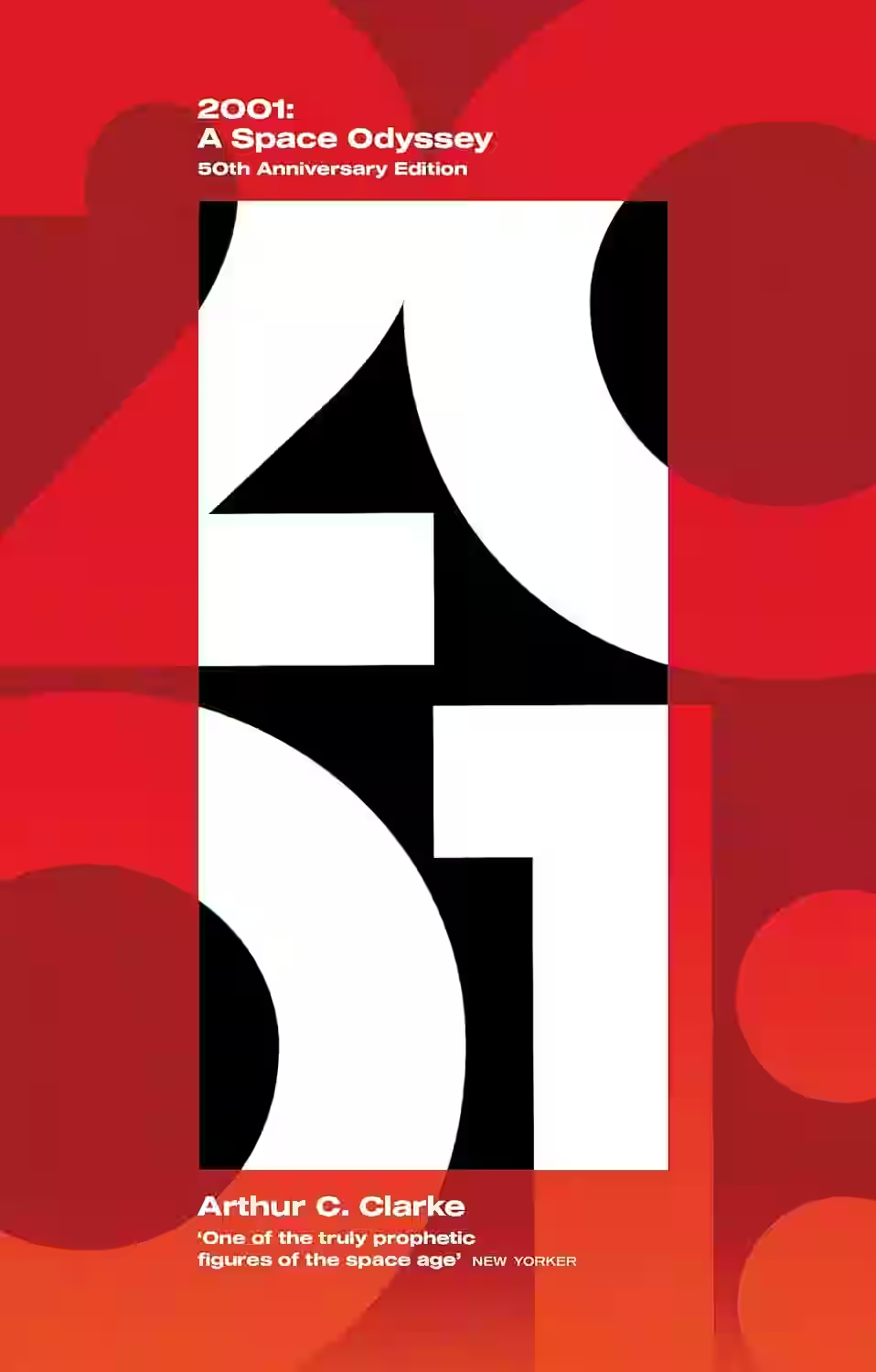
2001: A Space Odyssey
Arthur C. Clarke's '2001: A Space Odyssey' is a groundbreaking science fiction masterpiece that explores themes of evolution, technology, and the existence of extraterrestrial life. The novel follows the journey of a crew on a space mission to investigate a mysterious, alien monolith that may hold the key to humanity's place in the universe. As they traverse the vast reaches of space, encountering the enigmatic computer HAL 9000, the crew grapples with questions of identity, consciousness, and the nature of intelligence. Clarke's visionary storytelling and scientific accuracy have cemented this novel as a classic of the genre, inspiring generations of readers and influencing countless works of science fiction.
Similar Books
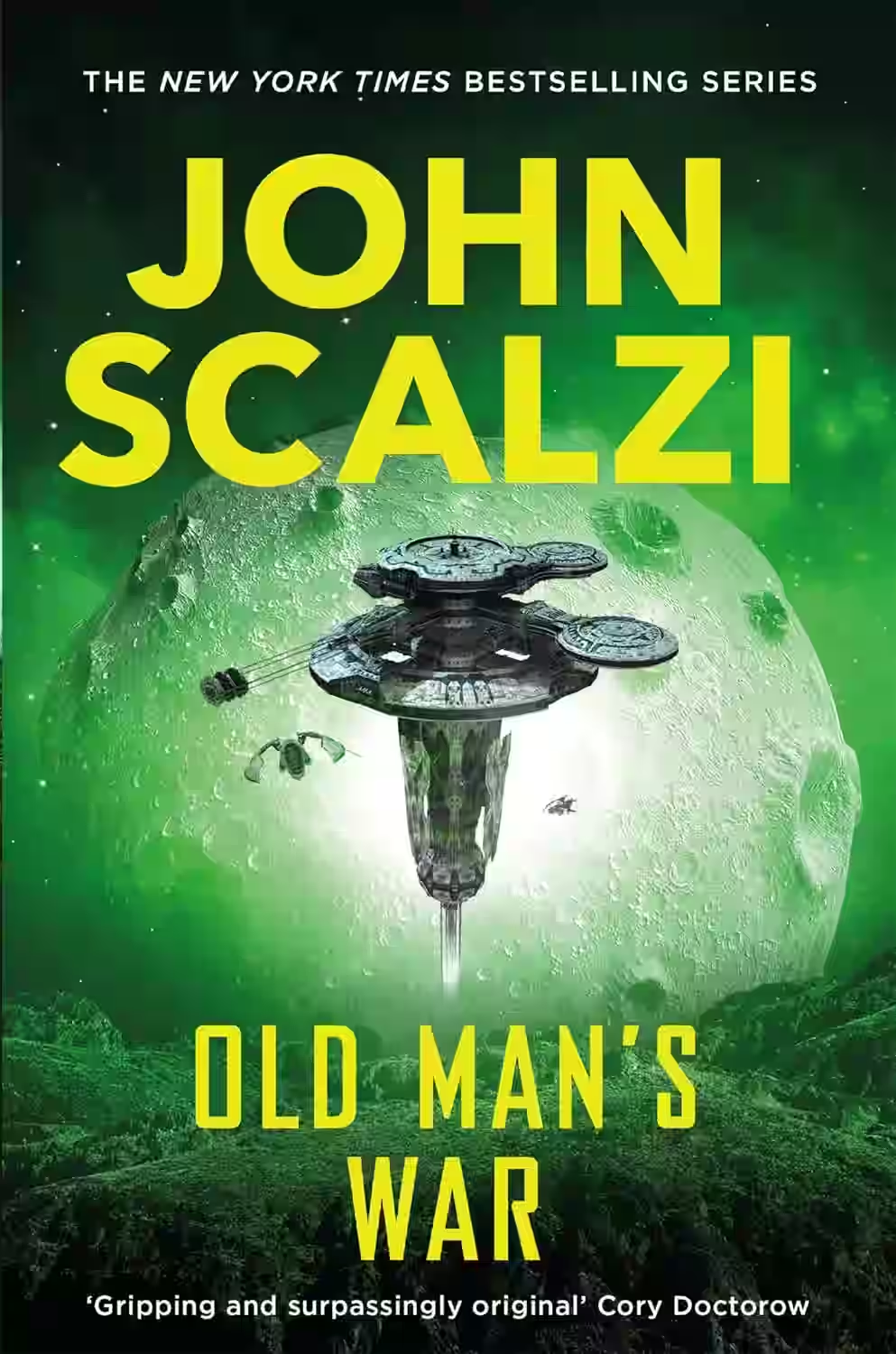
Old Man's War
by John Scalzi
Series: Old Man’s War (#1)
John Scalzi's 'Old Man's War' offers a fresh take on military science fiction, blending adventure with insightful explorations of aging, humanity, and war. The novel follows John Perry, who, at 75 years old, enlists in the Colonial Defense Forces, leaving Earth behind for a future he never expected. Scalzi crafts a compelling universe where the elderly are rejuvenated into youthful, enhanced bodies to fight in interstellar conflicts. The book is lauded for its humor, brisk pacing, and thought-provoking examination of identity and mortality. With its balance of action and introspection, 'Old Man's War' captivates both sci-fi fans and newcomers alike, making it a standout in the genre.
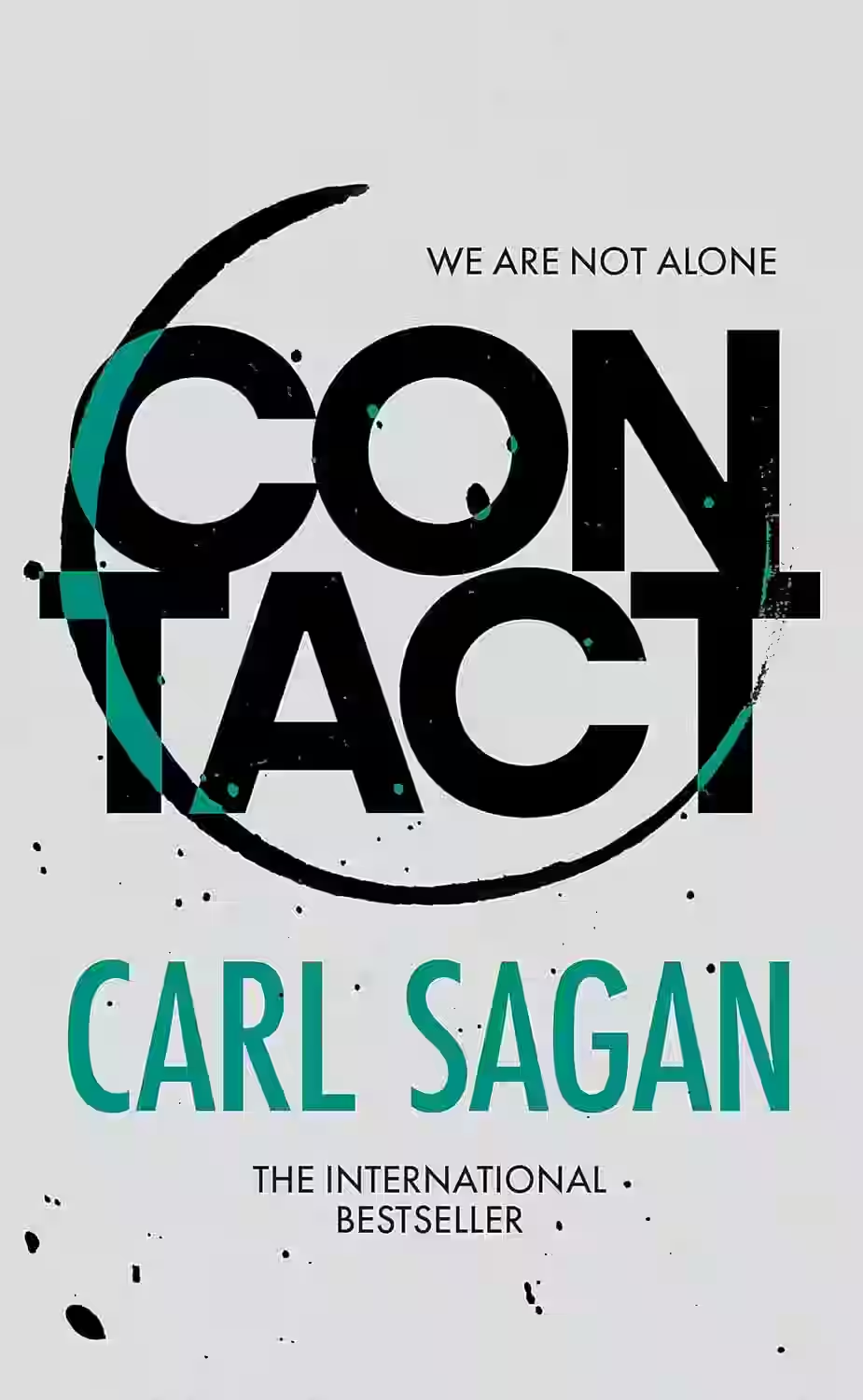
Contact
by Carl Sagan
In Carl Sagan's thought-provoking novel 'Contact,' readers are taken on an exhilarating journey through space exploration, science, and the age-old question of humanity's place in the universe. The story follows Dr. Ellie Arroway, a passionate and dedicated scientist who makes contact with extraterrestrial beings through a mysterious signal from the star Vega. As Ellie navigates the complexities of politics, religion, and the unknown, she embarks on a quest for truth that challenges her beliefs and the very fabric of reality. 'Contact' seamlessly weaves together science and philosophy, offering a captivating narrative that explores the boundless curiosity of the human spirit.
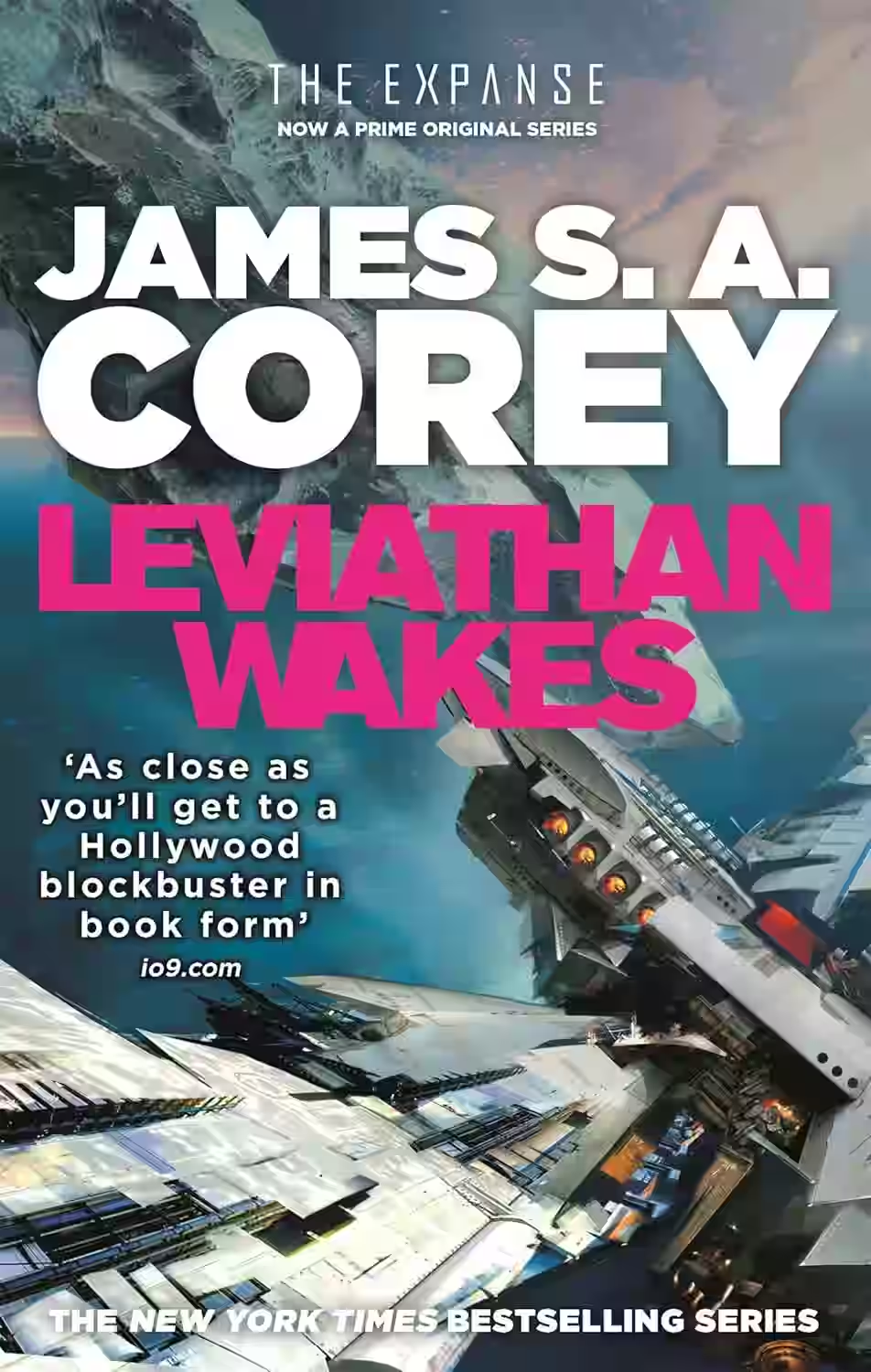
The Expanse: Leviathan Wakes
Series: The Expanse (#1)
In 'The Expanse: Leviathan Wakes' by James S. A. Corey, readers are taken on a thrilling sci-fi journey set in a future where humanity has colonized the solar system. The story follows detective Miller and ship officer Holden as they unravel a conspiracy that could ignite interplanetary war. Packed with political intrigue, space opera elements, and impeccable world-building, the novel explores themes of power, survival, and morality against the backdrop of a vast and volatile universe. With its well-crafted characters, fast-paced plot, and intricate storytelling, 'Leviathan Wakes' grips readers from the first page to the last, making it a must-read for sci-fi enthusiasts.
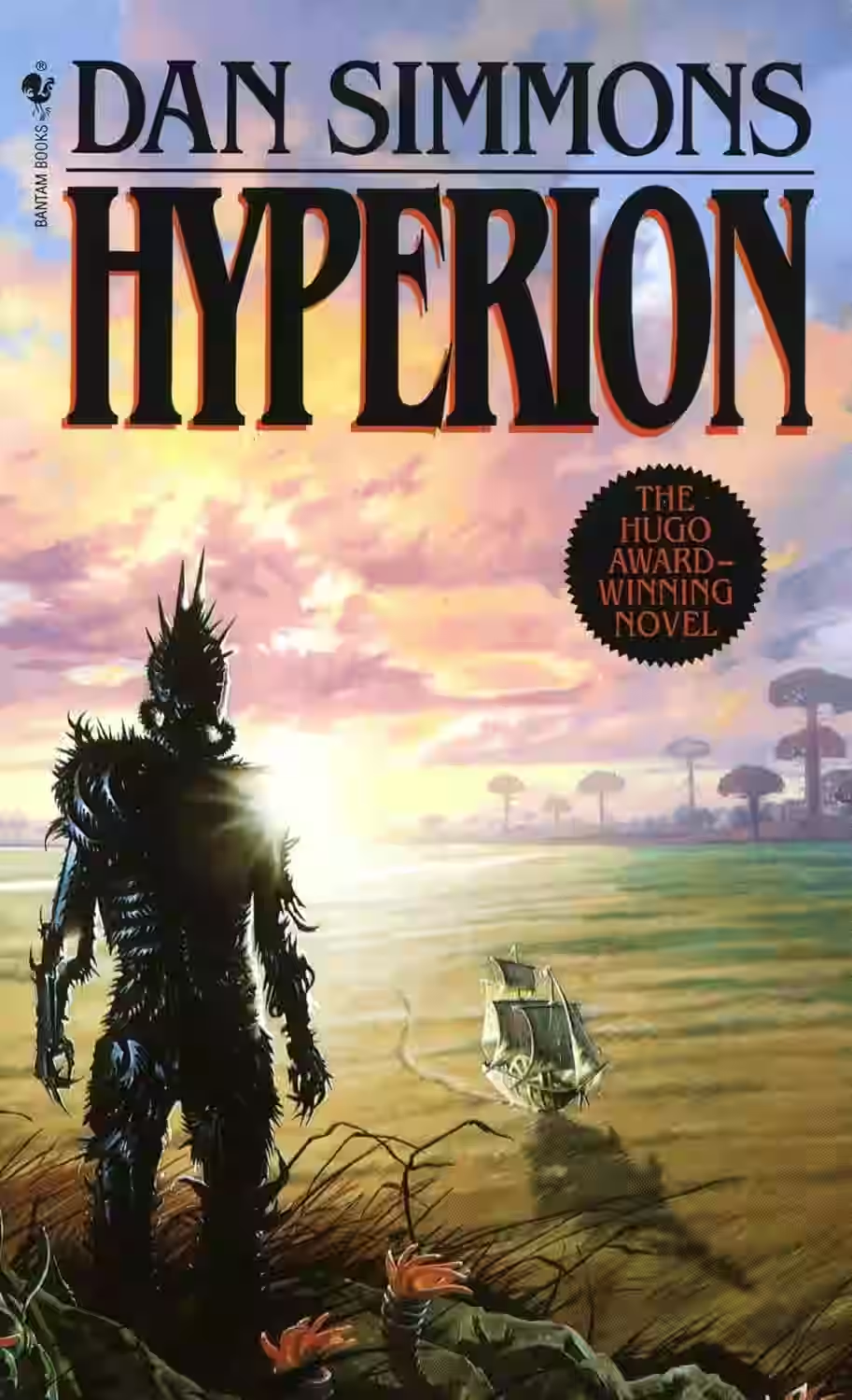
Hyperion
by Dan Simmons
Series: Hyperion Cantos (#1)
Dan Simmons' 'Hyperion' is a gripping science fiction masterpiece that weaves together elements of space opera, time travel, and philosophical inquiry. Set in a distant future where humanity has spread across the galaxy, the novel follows seven pilgrims on a harrowing journey to the enigmatic world of Hyperion, each with a tale to tell that adds layers to the rich tapestry of the narrative. As they navigate the perils of the Shrike, a terrifying entity lurking on Hyperion, they confront questions of identity, destiny, and the nature of consciousness. With its intricate world-building, complex characters, and thought-provoking exploration of existential themes, 'Hyperion' is a must-read for fans of cerebral science fiction.